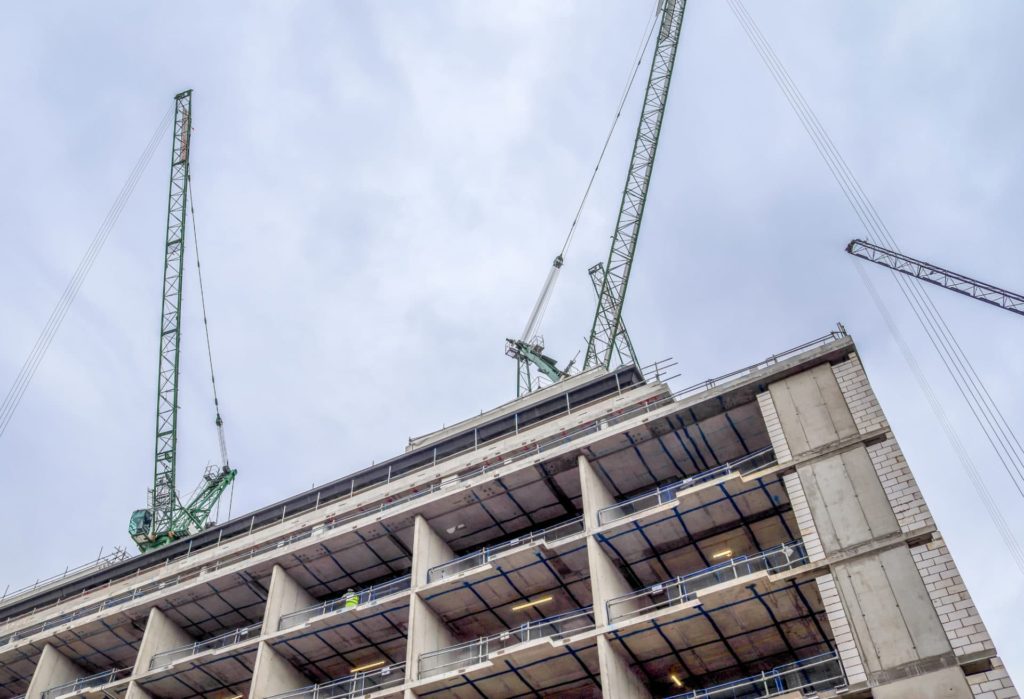
Covid-19: Long term impact on landlords and tenants – the need for a collaborative approach

The unprecedented crisis of coronavirus leaves commercial landlords and tenants with similar concerns and the common need to ensure that their business survives the lockdown period and beyond. A collaborative approach to the issues facing commercial parties could lead to this being achieved using pragmatic solutions which suit both. Here we answer eleven key questions you should be asking:
- Are there any alternatives to rent concessions or rent deferment agreements?
- Should rent concessions be withdrawn on partial reopening?
- Is the tenant liable for the rent during lockdown? Rent suspension and insurance.
- How might social distancing and gradual lifting of restrictions impact service charge costs?
- As premises emerge from lockdown, what physical changes may be necessary?
- What impact will lockdown have on other lease provisions? Rent review, dilapidations and break rights.
- What should landlords consider before taking enforcement action?
- Will force majeure clauses in leases become market practice?
- Can assessors carry out EPC (energy performance certificate) assessments under lockdown?
- What are the obligations of the occupier or owner of property under Health and Safety Law?
- What should tenants and landlords consider when deciding whether or not to open premises from a health and safety perspective?
Are there any alternatives to rent concessions or rent deferment agreements?
The instinctive reaction and impact of the timing of lockdown before the March quarter day resulted in rapid requests for monthly rent concessions and deferment of rent payments.
The parties may not have had time to consider how these arrangements will need to adapt in line with lifting of restrictions. It could be beneficial to both parties to operate on a turnover rent basis for a period of time or alternatively to gradually agree to step the rent back up to passing rent. Such options would account for the anticipated gradual removal of lockdown and return to normality while not removing the obligation to pay the rent for the relevant period.
Tenants should be prepared to take an open book approach with landlords and share the best- and worst-case scenarios in terms of their trading projections. Depending on the eventual shape of the recovery the parties should discuss adapting any agreement in terms of rental arrangements to suit the evolving economic reality. This may lead to an increase in turnover rents. It has long been an area of contention as to whether online sales which could be said to originate from a physical store, the so-called "halo effect", should be taken into account when calculating turnover rent. Could a concession of this type combined with an extension to the lease term go some way to helping balance the pain being felt by landlords who have seen their investment values and rental revenues negatively impacted?
Should rent concessions be withdrawn on partial reopening?
In agreeing such arrangements, landlords should appreciate that even if the tenant manages partial trade when lockdown restrictions are lifted, the tenant will need to consider the imminent risk of recession and the impact of behavioural change on different sectors.
Landlords may decide it is unfair for a tenant to still benefit from a rent concession if it can still use its premises. However, the tenant may only be able to partially open and its trade may be compromised due to social distancing restrictions.
On the other hand, even if the tenant benefits from being able to partially open premises, landlords should bear in mind the long-term impact of Covid 19 and not necessarily refuse tenant requests for rent concessions. Even if the tenant is managing partial trade now or does so in future (for example hotels in occupation by hospital workers or restaurants and cafes open for takeaway or delivery options), long term there is the imminent risk of recession which the tenant's business needs to brace itself for.
Is the tenant liable for the rent during lockdown? Rent suspension and insurance.
Rent suspension clauses in leases will not normally be engaged as a result of forced closure due to government restrictions. However, a close examination of rent suspension clauses, the insured risks under the lease and the insurance policy (including loss of rent) documents will be needed in order to assess where the liability for rental payments truly sits.
Tenants can be reassured that, if the rent liability is theirs, the pressure to pay immediately is alleviated by the Coronavirus Act 2020. The Act prevents landlords from forfeiting for non-payment of rent until 30 June 2020 (a date which could be extended). However, it does not release tenants from the obligation to pay.
From a landlord's perspective, early discussions with insurers are advisable to settle the position as soon as possible.
How might social distancing and gradual lifting of restrictions impact service charge costs?
In multi-let commercial environments, landlords will need to consider what they need to do to evolve the services they provide. For example:
- Will it be necessary to put in place hand sanitising stations and a more frequent cleaning rota?
- Are there areas of the common parts, such as play areas in shopping centres, which should be closed for social distancing reasons?
Tenants may baulk at continuing to make payments on account of service charge if the actual services provided differ vastly from those the landlord envisaged at the start of the service charge year. Landlords should be prepared for the discussion and be ready to share their analysis of any changes to service charge budgets.
As premises emerge from lockdown, what physical changes may be necessary?
Once premises can open, tenants should consider whether licences for alterations are needed to install social distancing equipment, such as plexiglass shielding, or partially refit properties to ensure they can be used in compliance with current restrictions.
The tenant may also need to make alterations to common parts such as using parking areas to allow for queuing. It is preferable for the parties to agree an express temporary variation to the lease to allow such changes, rather than risk an argument later that the landlord impliedly consented to a permanent variation.
In the hospitality sector there have been change to permitted development rights, allowing restaurants, cafés and pubs to provide takeaway food. Takeaway food includes hot and cold food both for collection or delivery and which is to be consumed, reheated or cooked by consumers off the premises.
Points to note:
- These measures apply between 24 March 2020 and 23 March 2021.
- Operators must notify their local planning authority if they are providing takeaway food.
- For planning purposes, the use class of the premises is not affected if operators take advantage of the new rules, the premises will revert to their previous use when takeaway food is no longer being provided.
- The new rules do not override existing planning conditions. If the premises are affected by a planning condition that restricts the sale of takeaway food then an operator cannot take advantage of the new rules.
- The new rules do not obviate the necessity of obtaining landlord's consent to a change of use under a lease and the tenant cannot assume that the change in planning law will be sufficient grounds for a change of permitted use under a lease. The tenant should engage with the landlord to ensure that any change to the permitted user is documented.
What impact will lockdown have on other lease provisions? Rent review, dilapidations and break rights.
All eyes are on the property market and how the pandemic will affect rents and property prices. Imminent rent review dates will not be immune to the impact, but only leases drafted to allow for a "downwards" review will benefit tenants.
The UK government's current "stay at home" policy and availability of contractors to undertake the works will impact on a tenant's ability to comply with a terminal claim for dilapidations. However, availability of surveyors to undertake inspections will impact the pace at which landlords can bring claims. The pandemic will not prevent landlords taking action, but they will need to take care when bringing claims for damages and particular attention will need to be given to the diminution in value of the reversionary interest. Tenants should insist on landlords commissioning reports early in proceedings to best protect their position.
Exercising tenant break clauses will pose obvious practical problems, particularly effective service and compliance with any conditions. The long-term impact of the conduct on the relationship and reputation of each of the parties should be considered. It may not be possible in practice to comply with all tenant covenants and early notice and engagement with the landlord will be critical. The parties should take a transparent approach and the lease needs to be considered in its entirety in order to minimise the risk of disputes arising.
What should landlords consider before taking enforcement action?
The Coronavirus Act 2020 prohibits landlords from forfeiting commercial leases for non-payment of rent until 30 June 2020 whilst providing that the right to forfeiture is not waived as a result of the ban. The Act does not prevent forfeiture on other grounds.
The Act does not prevent landlords implementing other enforcement options, but impending legislation will impact the ability to take insolvency actions for non-payment of rent in the immediate term.
Landlords keen to exert pressure on tenants (and working on the basis the tenants will not want to lose the premises) may consider forfeiture on other grounds. Many landlords have asked if breach of a keep-open provision would entitle them to forfeit. The common law in this area combined with the Coronavirus Act 2020 makes this unlikely. Other practical problems will affect landlords looking to forfeit, such as the availability of enforcement officers free to peaceably re-enter and the availability of court time to hear a forfeiture claim before the current social distancing restrictions are lifted.
Landlords and tenants must consider the impact which not engaging meaningfully with each other will have on their relationship and position long-term. Honest, sincere engagement will be of paramount importance when any cases, whose provenance is this universally difficult period, reach court and face the scrutiny of the judiciary.
Will force majeure clauses in leases become market practice?
These are increasingly requested by tenants and may become the norm. We have yet to see widespread adoption of such clauses as market standard, but the position is likely to evolve as we move out of lockdown and tenants seek to trade in a new way and in an economy in recovery. In order to complete transactions, there may be sympathy from landlords to amended lease terms which would have been unusual and unacceptable in the past.
Lease drafting will adapt to the times. It is likely that parties will revisit how a major interruption to business should be dealt with in the future. One likely area for overhaul is inclusion of force majeure clauses. Anything which enhances the tenant's flexibility in this area is likely to have a significant rental impact, which in turn may influence the standard position in drafting adopted by the market.
Can assessors carry out EPC (energy performance certificate) assessments under lockdown?
Currently the legal position remains the same and a valid EPC must be provided on marketing of a property for sale or let or following conclusion of construction works or substantial alterations. Access to carry out assessments while complying with social distancing requirements may be tricky. Guidance has been given but leaves questions unanswered. EPC assessments can be carried out if the property is vacant, but no assessment should take place if any person in the property is showing symptoms. The result is that some sale and purchase transactions may be delayed because the legal requirement to obtain an EPC before selling or letting a property remains in place.
The EPC regulations require reasonable efforts to be used to secure a valid EPC before the end of 7 days from the date the property is first marketed and if, despite reasonable efforts, an EPC is not obtained a certificate must be obtained before the end of a further 21-day period.
If an EPC is carried out and the asset rating is substandard (that is currently lower than an E rating) the landlord will need to carry out improvement works to ensure that the minimum energy efficiency standard of E is reached before a lease is granted. The current lockdown restrictions may make this more difficult in terms of availability of contractors and materials.
What are the obligations of the occupier or owner of property under Health and Safety Law?
Landlords and tenants need to ask who is in control of all or any part of premises and consider that health and safety obligations attach to employers. It is clear that Coronavirus is a threat to the health and safety of employees, customers and suppliers entering premises.
Health and Safety law requires an individual or business to ensure the health and safety of workers or third parties who could be affected by their activities. An employer must demonstrate that they have done everything that is reasonably practicable to secure the health and safety of such persons. A person in control of all or part of any premises should have in place procedures that demonstrate they have taken all reasonable steps to protect the safety of those invited and uninvited entering the building or premises.
If the tenant is an employer, they will need to follow the requirements of the Health and Safety at Work etc Act 1974 and Regulations made under that legislation. The Act states that employers must: assess risks to employees, customers, partners and any other people who could be affected by their activities; arrange for the effective planning, organisation, control, monitoring and review of preventive and protective measures; ensure they have access to competent health and safety advice; and consult employees about their risks at work and current preventive and protective measures.
The tenant must plan for, and risk assess the effect of, Coronavirus COVID-19 in connection with their operation. Further, Coronavirus COVID-19 is a reportable incident within the meaning of the Reporting of Injuries, Diseases and Dangerous Occurrences Regulations 2013. The Health and Safety Executive provides advice about reporting an incident of Coronavirus COVID-19. Our article here is a good point of reference here.
A landlord should also consider that the virus is a biological agent, so the Control of Substances Hazardous to Health Regulations 2002 (COSHH) may be relevant, as they provide a framework to control the risks from a range of hazardous substances. Whether such obligations towards tenants exist under COSHH largely depends on the level of control a landlord has over the property, which will itself be determined both by the terms of the leases granted and the physical characteristics of the property.
If a landlord does have obligations under COSHH or other health and safety legislation regarding the premises it lets, it should assess the risks of coronavirus COVID-19 and may need to take preventative measures (e.g. more frequent cleaning of lavatories, eating areas, door handles and hand rails). Landlords may also have responsibilities to the extent that they exercise relevant control over parts of premises (and their ability to implement measures). It is worth adding that Coronavirus COVID-19 is seemingly passed between humans rather than emanating and spreading because of the construction of the building or management of the infrastructure.
Landlords who are also employers will also have duties to their staff and others regarding risks posed from infectious diseases and the considerations above at point 1 will apply. Failure to comply with these requirements can have serious consequences – for both organisations and individuals (Directors etc). It is worth adding that although one might expect the HSE's attention to be elsewhere for the time being – that will not last forever. The Health and Safety legal and regulatory framework is extensive; the apparatus for investigation and prosecution sophisticated and the penalties severe. Prevention here is most certainly better than cure and all commercial entities need to carefully consider and document how they reduce the risks associated with the virus.
What should tenants and landlords consider when deciding whether or not to open premises from a health and safety perspective?
In summary the issues businesses (employers) will want to consider are as set out below and are considered in more detail in our article Staying open, staying safe. Protecting your people and your brand.
- Am I allowed to open as a matter of law?
- What happens if I cannot open with social distancing? A business can still open and although the social distancing measures ought to be followed wherever possible, premises may remain open even if this is not possible. Click here to see the Government guidance
- Should I open – financial benefit versus reputational and regulatory risks?
- What are my health and safety and incident reporting obligations regarding employees and other parties?
- What happens if one of my employees contracts COVID – 19?
- Do I need to test and contact trace cases which arise?
If you'd like to get in touch with us, a coordinated team of experts are leading our support and can be contacted collectively using our dedicated inbox: [email protected].












